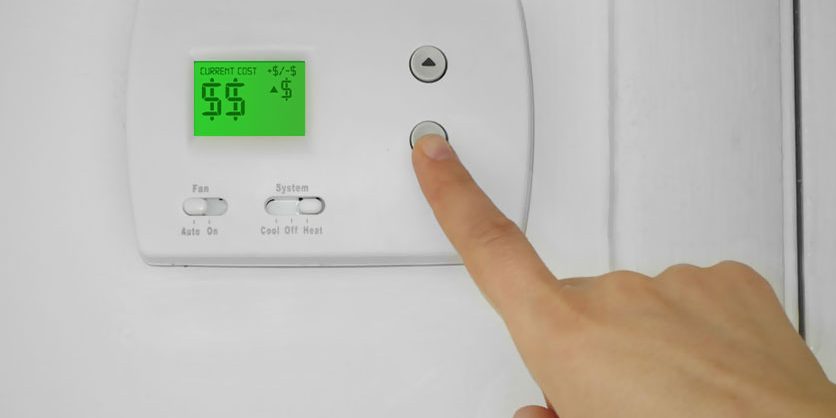Your Air Conditioner May Be Stealing From You.
Domestic air conditioning uses roughly 6% of all electricity produced in the United States. That amounts to a $30 billion bill each year, just for cooling our homes. Inefficient and poorly maintained AC units draw more power than others, and cost more money to operate, without performing as well.
To get your money’s worth from your air conditioning system, consider these tips.
Clean Your System Regularly
Most of us are in the habit of checking our AC units when the weather turns warm, and letting them go until the next spring. That’s not enough. At least once a month, check your air conditioner’s external vents and clear them of any dust or debris. While you’re outside, be sure to trim back any branches or bushes that come within a foot of each unit: branches and leaves can block vents all by themselves, and flowering plants can produce enough pollen to quickly clog your air conditioner’s filters.
Replace the Filters When Their Time Has Come
Speaking of filters, make it a habit to replace them regularly. Clogged filters restrict airflow within an air conditioner, which causes its motor to work harder to draw the amount of air it expects to drive through the system. At best, you’ll waste electricity. At worst, a clogged filter won’t let enough air through no matter how hard the motor works, and you’ll pay more for less cooling. In extreme cases, an overworked motor and dusty inner workings can even pose a fire hazard. Some filters are designed to be cleaned every month or so, but even these must eventually be replaced.
Keep the Fins in Order
An air conditioner’s condenser fins—those thin aluminum strips on the unit’s outdoor-facing side—cover the coils that transfer heat from inside your home to the outdoors. Aluminum transfers heat better than the coils alone can, and thinner fins provide more surface area. Thinner fins also bend more easily, and bent fins are less efficient. Use a fin comb to straighten bent fins; if you have a window unit, remove the fin housing occasionally to give them a good wash with a bit of dish washing detergent.
Keep the Vents Open
If you have central air conditioning—a separate unit outside feeding registers in multiple rooms—be sure to open your supply and return vents and leave them open. Your system is calibrated to work at a certain capacity, and restricting the flow of air at any point can cause it to work less efficiently. When multiple vents are kept closed for long stretches of time, the entire system can suffer problems similar to those caused by a clogged filter.
Place Your Unit Carefully
When air conditioning units sit in the sun, they have to work extra hard. Simply placing your AC unit in a cool, shaded location can cut your energy bill by 10%, and can greatly extend the working life of your system. If need be, consider adding an artificial shade to keep your unit as cool as possible.
Insulate all Ductwork
Without proper insulation, a central air system can waste as much as 30% of the energy it uses. Insulation also guards against condensation, which can introduce water to houses even when they are well protected with moisture barriers. Before you apply insulation to the system’s ductwork, be sure to seal all ducts with mastic. Then surround each duct with insulation with an R value of at least five; while you’re at it, though, R-8 is the best bet.
Don’t Need It? Don’t Run It.
This might seem like obvious advice, but it’s best not to run your air conditioner when you won’t be around to enjoy it. Everyone likes to walk into a cool room on a sweltering day, but you’ll get more life from your system, and spend considerably less, by shutting it off when you’re not at home. On especially hot days when you’ll only be gone for a little while, consider setting your thermostat higher than usual: you’ll still get a bit of relief when you return, and it won’t take long to bring your home’s temperature down to where you like it.
Use Ceiling Fans
Air conditioners supply cool air. Ceiling fans go a long way toward distributing that air evenly. Even a single window-mounted AC unit can cool several rooms with the help of strategically positioned ceiling fans. And though you’ll be investing a bit more energy in the fans themselves, your cooling system as a whole will operate more efficiently, likely at a net savings.
Get on the Schedule
To catch small problems before they become expensive failures, it’s best to schedule an annual inspection and round of maintenance for your system. Regular tuneups by an AC professional can add years to the life of your air conditioning system and keep extra dollars in your wallet each month. So can following the tips listed here for the other 364 days of the year.








